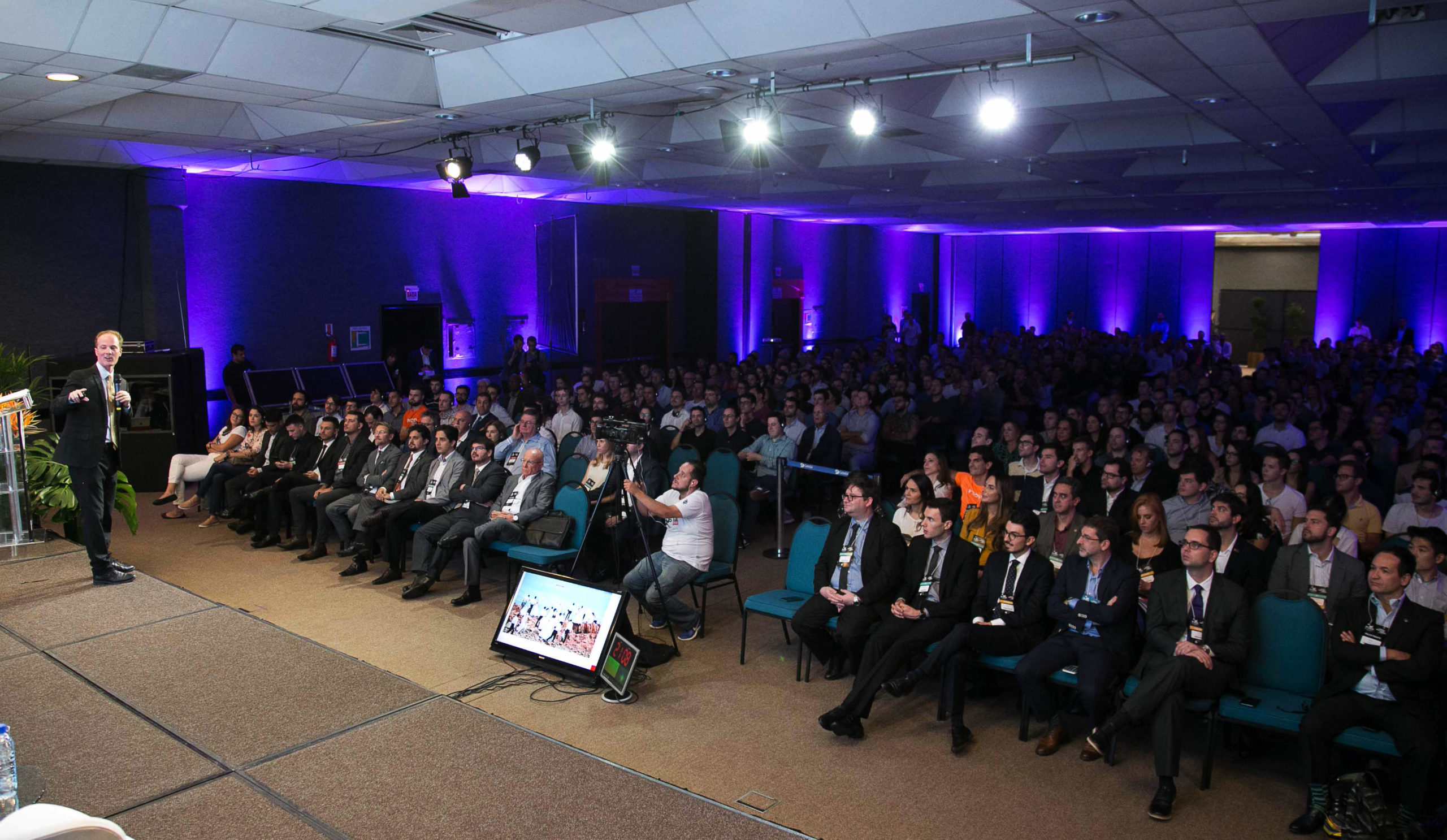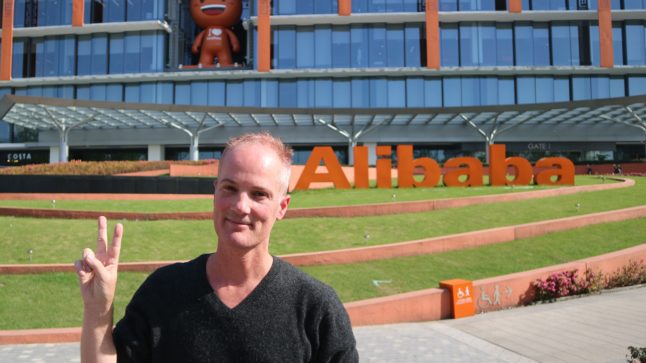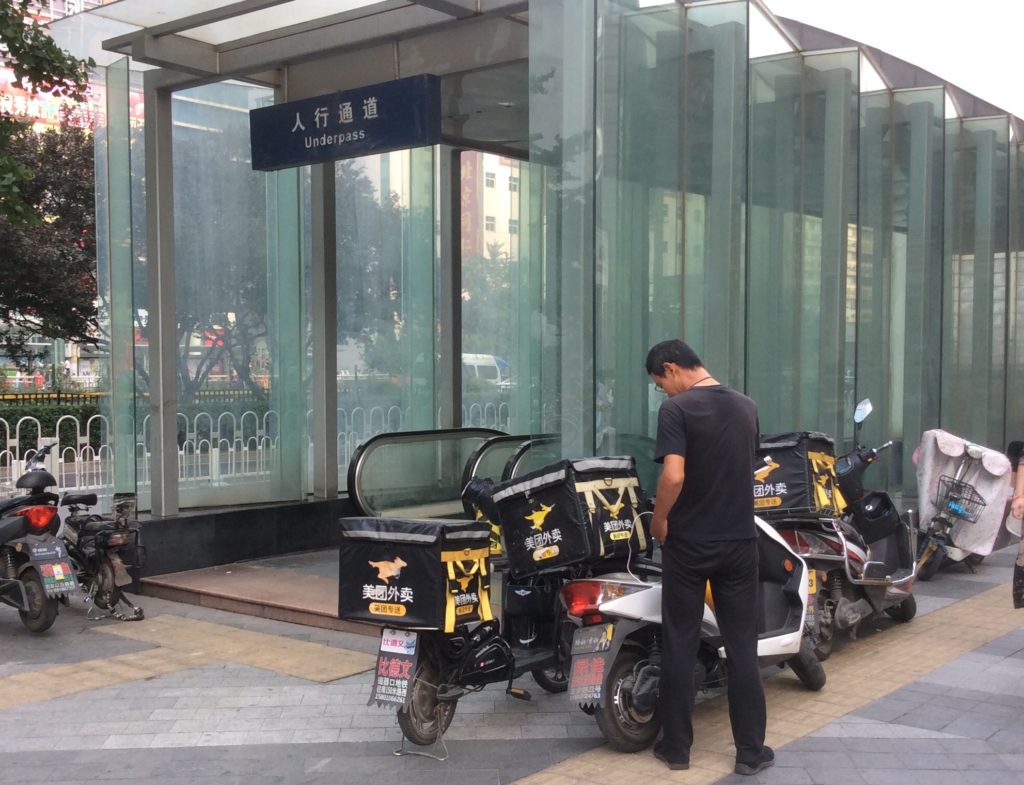This is Part 3 on my visit to the Meituan-Dianping headquarters in Beijing. Part 1 was my main take-aways. Part 2 was what I think people are getting wrong about Meituan.
“Local services” has been a hot topic this year. And we have seen big local services moves by many of China’s digital giants.
- Tencent-backed Meituan-Dianping bought Mobike (a bike-sharing service). They also did some trials in ride-sharing (another local service). Now they have always been a services company (food delivery, hotel and restaurant reservations, etc.) but they are clearly expanding into transportation and other local services. They have also opened two “new retail” type supermarkets.
- Ride-sharing giant Didi Chuxing has launched food delivery in 5(?) cities. And they have received a $500M investment from Booking Holdings, which looks like a move towards travel and hospitality services. Plus they are opening their driver services to all car owners (Xiaoju Auto Solutions). So they are deepening in mobility services and adding new value-added services to this.
- Alibaba is expanding from e-commerce to local services on multiple fronts. They now offer hotel reservations (Fliggy). They are in bike-sharing (Hellobike). They have shown indications of going into ride-sharing via AutoNavi. And, most importantly, they are making big moves in Ele.me, Koubei and delivery overall. Per Joe Tsai, “Alibaba’s three-pronged consumer offerings in retail, entertainment and local services will be the long-term drivers of value creation as the Chinese middle class expands and more of these consumers demand a higher-quality lifestyle.”
- Plus Alibaba’s “new retail” initiatives all depend on local services, including delivery and in-store services. The Hema supermarkets offer food preparation, beauty services, and so on (Hema supermarkets basically function as a store plus logistic hub plus service platform). And delivery is strongly integrated into all their new retail structures (mom-and-pop stores, convenience stores, supermarkets, department stores, etc.)
- Ctrip continues to expand internationally and is staying pretty focused on hospitality and travel. They offer hotels, trains, and tour groups. But they are increasingly customizing travel and tours. And they have taken steps into ride-sharing.
So what is going on? Why are so many of China’s digital giants moving into local services right now?
At the simplest level, it is because there are opportunities for synergies in adjacent businesses. It’s easy to add new related services when you already have customers (and data). For example, Alibaba users can get Ele.me super membership by buying a cycling card for Hellobike. And they can access Ele.me via the Hellobike App. The customer acquisition costs are pretty low.
But more importantly, there is a new phase in the fight for Chinese consumers and their increasing discretionary spending.
Each of the above companies dominates a particular area (Didi in mobility, Alibaba in e-commerce, Ctrip in travel / hospitality, Meituan in food delivery). And they are all adding local services to their offerings to meet the increasing expectations of their own consumers. There is a strong pressure to offer an increasingly comprehensive and seamless set of products and services. Everyone is trying to keep up with their customers. And nobody wants to be outflanked. The problem is nobody quite knows where the industry boundaries are going to end up. Do we have offer everything?
In Chinese local services, I think there are actually 3 things happening at once:
1: China’s service business are being digitized.
Retailers and product merchants got digitized and moved online first (Alibaba, JD, VIPshop Pinduoduo). But service businesses are now following suit. Meituan was the trailblazer here. They started by offering restaurants online bookings and delivery capabilities. This dramatically increased their potential customers. and this created a two-sided platform between small service businesses and Chinese consumers.
From there, Meituan added additional service businesses to their platforms (hotel bookings, beauty appointments, movie ticket sales). And they are increasingly digitizing the operations of restaurants and other small service businesses. They are offering them inventory management, operations software, supply chain expertise, financing and other digital tools. This is great for the small businesses – and it also helps Meituan build in switching costs on this side of the platform.
2: Online retailers are moving offline (and vice versa).
This is new retail. It is the combination of online and physical assets into one seamless, data-driven consumer experience. It started in convenience stores and supermarkets. But it is moving to department stores, fashion / luxury, healthcare, financial services and other sub-sectors. The addition of physical assets have given e-commerce companies a new ability to add in-store services. It also turns out delivery (a service) is critical to most all new retail.
3: E-commerce companies are evolving towards comprehensive B2C marketplaces.
This was my earlier point. The largest digital consumer giants (Alibaba, JD, Tencent) are adding more and more products and services. They are becoming super-apps that offer everything a consumer might need – an ultimate B2C marketplace. How far this will evolution will take place is unclear. But there is a strong trend in that direction right now.
***
So everyone seems to be moving into local services. And the fight is getting particularly fierce right now. For example:
- Ele.me has launched a “summer war” against Meituan in delivery (prepared food, groceries and medication). They are spending hundreds of millions of dollars to regain market share.
- Mobike has ended its deposit requirement for bike-rentals, which is direct challenge to ofo.
- Luckin Coffee is subsidizing retail coffee (I got a free latte yesterday). And now Starbucks has partnered with Alibaba in delivery (and some services) – which led to Luckin Coffee partnering with Wechat.
It’s getting pretty crazy.
Keep in mind, digital competition does tend to go to “winner take all” dynamics. There are low marginal costs and positive network effects (and some other stuff). So you have to be #1 or #2 to survive. This means the fights tend to be intense (think Uber vs. Didi).
And on top of this, you have an ongoing fight for data, the new key resource. Per AI expert Kai-Fu Lee, if data is the new oil then China is the new Saudi Arabia.
***
Anyways, that’s my take on all the “local services” talk floating around. In Part 4, I’ll finish up with what I think is next for Meituan.
Thanks for reading, Jeff
- Three Things I Learned From My Visit to Meituan (Pt 1 of 4)
- 4 Things People Are Getting Wrong About Meituan-Dianping, China’s Food Delivery Giant (Pt 2 of 4)
- Meituan vs. Alibaba vs. Ctrip Is About 3 Big Questions (Pt 4 of 4)
———
I am a consultant and keynote speaker on how to increase digital growth and strengthen digital AI moats.
I am the founder of TechMoat Consulting, a consulting firm specialized in how to increase digital growth and strengthen digital AI moats. Get in touch here.
I write about digital growth and digital AI strategy. With 3 best selling books and +2.9M followers on LinkedIn. You can read my writing at the free email below.
Or read my Moats and Marathons book series, a framework for building and measuring competitive advantages in digital businesses.
Note: This content (articles, podcasts, website info) is not investment advice. The information and opinions from me and any guests may be incorrect. The numbers and information may be wrong. The views expressed may no longer be relevant or accurate. Investing is risky. Do your own research.


